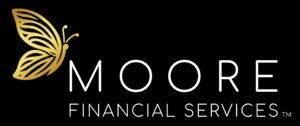
SEO is a very powerful strategy, and if you do it right, you can automate your business, and your business keeps running pretty much on its own, even when you are on a vacation or when you are sleeping at night. Okay, let’s get started. SEO is a traffic strategy to achieve higher search rankings on Google, Yahoo! MSN, etc. As you know, people search for what they want on Google, and Google returns the results for their search criteria. Google shows the search results according to some rules and regulations they have, and the keywords specified. If you know about their rules, and how to use them to your advantage, you can have your landing page shown on top of the search results. Once you do this, people searching for a business opportunity that matches yours according to their keywords and Google’s rules, they will get to know about you, and your business, and if they decide that it is beneficial to them, they will join your business.
One of the ways search engines determine site ranking is to sort through your online content and rank the site based on repeated keywords or phrases. Content rich websites have found success in Search Engine Optimization (SEO) strategies. While I highly recommend this strategy there is another viewpoint that is less dependent on content for exposure for site rankings. Some webmasters are strong proponents of non-content SEO strategies. These technical experts rely very heavily on meta-title and other html or code-based SEO strategies for sites that are less content oriented. Purists on both sides of the argument will say their approach is far superior to the other. For the content sites they can judge their success through keyword strategies that are observable in long-term site rankings. For the non-content sites they can observe keywords or phrases being used to determine site rankings from a more technical source in behind-the-scenes code. So, which is the better approach?
SEO or Search Engine Optimization is a way to improve quality of your web pages / online documents to make them useful for end users. This lets you achieve high ranking in search results. How to promote my website online? Try to find out what people are searching for, you can do this by using keyword research tools. Optimize all those keywords, use only and only ethical ways. Write quality content that is useful and meaningful for your users. Keep track of latest techniques for bringing visitors. Setup a blog on your website. Invite blog writers to your website. Setup a system for newsletters, try publishing newsletters at least once in a month, and that should cover latest information on your products, services. Take advice of SEO service providers and grow slow and steady. What is internet marketing? Internet marketing, also referred as web-marketing, online marketing, or e-marketing, is marketing of products or services over the internet.
We’ve seen the best results from creating location pages for local businesses. Each location page will have that location’s NAP, hours, services or products, embedded map, link for driving directions, location-specific reviews, content about the city or area, and a unique contact form. Keyword Research & Targeting Search terms can vary per community or region, as can the search behavior of your potential customers. There are plenty of helpful tools to identify what keywords and phrases people are using to find your products and services. Sorting out keywords by local intent will provide a list of local terms to target for organic and paid search efforts. Once a list of local search terms has been created, the next step is to optimize pages on your site for these terms. Developing a robust content strategy will provide helpful, relevant content to your site that is useful for both your potential customers as well as Google. Structured Data Structured data is the behind-the-scenes code that sends even more information to Google about your company. Local SEO can take advantage of structured data (or Schema) to send search engines info about your location, service area, and products or services.
As part of a comprehensive search engine optimization campaign, gaining inbound links to your website is critical. But what exactly does this entail, and how should you most effectively go about gaining these types of valuable links? Although shortcuts seem like an attractive option, these plans often backfire. Such is the case in regard to building quality inbound links to your website as part of your search engine optimization campaign. As part of a comprehensive search engine optimization campaign, gaining inbound links to your website is critical. But what exactly does this entail, and how should you most effectively go about gaining these types of valuable links? When an arduous task presents itself, it is human nature to try to find a shortcut. Sometimes, these shortcuts work, and the quality of the end result is not sacrificed. But often, the shortcut either turns out to be a short-term fix or worse, it backfires, leaving you worse off than you were before.
Someone in San Francisco CAN buy a car that is located in New York or Boston.Second, people from all over the earth can now create an online business and sell many of their products and services all over the world.This means there are millions, perhaps billions of people trying to sell or buy on the internet at any given time.Anybody with a computer can put up a website, but to get people to visit that website, and perhaps make a purchase, requires more. There are literally thousands or even millions of websites offering the same thing that you offer. In order to make your website stand out, one thing you can do is use the techniques of SEO (Search Engine Optimization).Search engines are important to an internet business because it has been estimated that about 85% of website visitors arrive through a search engine listing.
